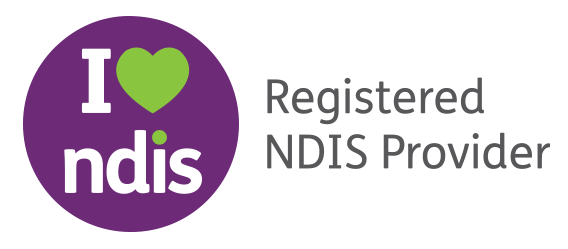Participant Enquiries
The Real Impact of NDIS Funding Changes on Participants in 2025–2026

Significant changes are happening in the NDIS throughout 2025. These updates affect how participant funding is released, how providers are paid, and the services that may be available especially in rural and remote areas.
Whether you’re a participant, family member, service provider, or someone working in the disability sector, it’s important to understand what’s changing and why it matters.
This article breaks down the latest updates and what they could mean for people accessing the NDIS.
What’s Changing in the NDIS?
From 19 May 2025, the NDIA began introducing funding periods into all new and reassessed NDIS plans. This changes how and when participants can access funding across the life of their plan.
Then, on 1 July 2025, the NDIA released new Pricing Limits for 2025–2026. However, alongside updated price caps, several significant changes were introduced:
| What’s Changing? | Why It Matters |
|---|---|
| Cuts to plan management funding | Less help for providers with invoices |
| No increase to Support Coordination rates since 2019 | Makes it harder for services to stay open |
| Cuts to therapy supports | Fewer services may be available |
| Caps on provider travel | Fewer providers willing to visit remote areas |
| Changes to how funding is released | Participants might not have access to their full plan funds upfront |
New Funding Release Rules
One of the most significant changes relates to how participant funding is released over the life of an NDIS plan.
From 19 May 2025, the NDIA began rolling out funding periods in all new and reassessed plans. Under this approach, funding is no longer fully available at the start of the plan. Instead, it’s released in segments throughout the plan duration.
Here’s what this means:
- The total funding amount in a participant’s plan hasn’t changed.
- However, participants may not be able to spend their entire budget upfront.
- This could affect larger purchases like assistive technology or block therapy bookings.
- Providers might also need to adjust how they schedule services or request payments.
Example:
Previously, if a participant had $10,000 allocated for therapy in a 12-month plan, they could spend that entire amount at any time during the year.
Under the new rules, they might only be able to access $2,500 each quarter.
While the NDIA says this change helps spread budgets evenly over time, it may create cash flow challenges for both participants and providers.
Participants should check their new plan carefully and speak with their Plan Manager or Support Coordinator if unsure.
Cuts to Plan Management Funding
The NDIA has reduced funding for plan management services. While Plan Managers still help manage budgets and pay providers, they no longer receive funding to help providers correct invoice issues for free.
Providers now need to ensure invoices:
- Are typed and legible
- Include correct NDIS support item codes
- Comply with NDIA invoicing requirements
Participants may also notice changes in how Plan Managers operate due to these funding reductions.
Challenges for Support Coordination
Support Coordination rates have not increased since 2019, despite rising costs for providers. This puts pressure on how many hours of Support Coordination might be available in future plans.
Potential impacts include:
- Fewer funded hours of Support Coordination
- Longer wait times for services
- Participants needing to manage complex NDIS processes alone
If your Support Coordination hours were reduced or unavailable, ask yourself:
- Would you feel confident managing NDIS rules, plan reviews, and providers on your own?
- Has your Support Coordinator helped you connect with services or understand recent changes?
- Do you feel NDIA call centres or local offices could adequately support you if you lost your Support Coordinator?t Coordinator?
Cuts to Therapy Supports
Many therapy services have also been affected:
- Caps on travel funding make it harder for therapists to visit participants in remote areas.
- Funding reductions for some therapies may decrease service availability.
- Smaller therapy businesses are reassessing whether they can continue operating under new price limits.
This may result in:
- Longer waitlists for therapy services
- Increased need for participants to travel for support
- Gaps in local service availability
How These Changes Might Affect Participants
Taken together, these changes could have significant impacts on participants, especially those living in rural and remote areas. Possible effects include:
- Fewer therapists able to travel to certain areas.
- Longer wait times or sometimes no services available at all.
- Local businesses are struggling to remain viable.
- Participants left navigating complex NDIS processes with less support.
How to Have Your Say
The NDIA and the Government want to hear from people directly affected by these changes.
Disability Intermediaries Australia (DIA) has created an easy online tool for sharing your story or concerns with decision-makers. It only takes a few minutes and can help highlight the real-life impacts of these funding and pricing changes.
Final Thoughts
The changes to NDIS funding, pricing, and funding release rules are significant and could reshape how participants access support, especially in regional areas.
Staying informed and speaking up can help ensure the NDIS continues to meet the needs of those it’s designed to support.

NDIS Plan Management and Support Coordination
At Empowrd, we are here to make your life easier. Based in Port Lincoln on the Eyre Peninsula, we offer a personal, accessible and holistic approach to NDIS Plan Management and Support Coordination.
We provide Plan Management services across Australia, assisting with financial administration, and offer Support Coordination to participants in Port Lincoln and Eyre Peninsula, connecting them with the right supports and providers. Our goal is to ensure your NDIS plan works for you, so you can focus on achieving your goals and doing what you love.

Want to Become a Support Worker?
Our Independent Support Workers Education Portal provides everything you need to navigate the NDIS, find work, and confidently offer services as an Independent Support Worker. For just $65, you will gain access to comprehensive guides, essential resources, and ready-to-use templates to streamline your work.
Inside, you will find:
- A clear breakdown of how the NDIS works
- Tips for finding jobs and delivering services
- Step-by-step guidance on invoicing and support planning
- Ready-to-edit templates for quotes, service agreements, invoices, and case notes
Need just the templates? You can also purchase them separately as standalone resources.
I hope you enjoy reading this blog post.
If you are ready to be Empowrd to live your life to the fullest, let us steer you on the right path.
Be EMPOWRD to Live Your Best Life
If you’re ready to be empowered to live life on your terms, we’re here to help guide the way. At Empowrd, we offer a personal, accessible, and holistic approach to NDIS Plan Management and Support Coordination. We’ll ensure your plan works for you, allowing you to focus on your goals and the things you love most.














